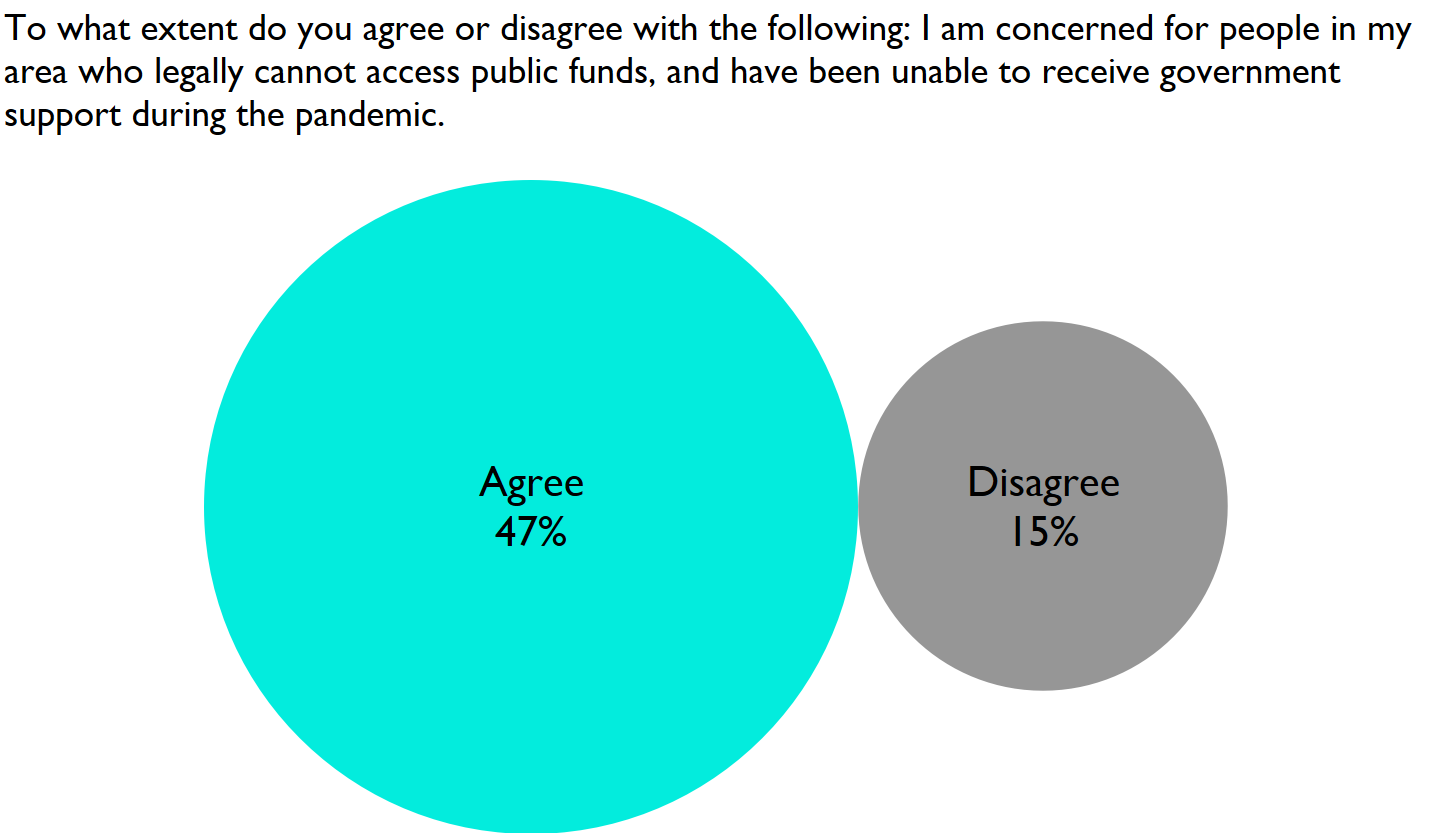Flotilla of different boats
How can we support everyone to build greater resilience into their lives and communities and face the future with increased confidence?
How can we support everyone to build greater resilience into their lives and communities and face the future with increased confidence?

We are all preparing to sail into an emerging future yet we do so in different boats. A minority have luxury yachts while most have smaller vessels with varying degrees of sea-worthiness. Some people have clustered together to build a raft while others are marooned in some long-forgotten Covid-19 backwaters. Something needs to be done.
“There’s no two instances where it’s had the same effect on individuals, because everyone has different circumstances, personally, professionally if they’re working, their different ages, different health conditions, and everyone has had to adapt themselves and some have found that easier or harder than others, there’s no rationale or rhyme or reason. We are all, I would suggest, still very much learning as we go along.”
Birmingham resident
“There are going to be vulture capitalists who are taking advantage of the crisis to further consolidate ownership, so it’s not like we are operating in a vacuum. When you look at Jeff Bezos who is going to be the first ever trillionaire. All the independent shops are closed, and you can still get everything delivered and you’ve got warehouses full of Amazon workers working horrible hours and crammed in, and that’s legal? How do we counteract some of the craziness that’s going on, the things that are really damaging to people’s livelihoods and the economy?”
Isla McCulloch, chairperson of the community greengrocer Dig In, Edinburgh
• 38 percent of adults (20.0 million) have seen their financial situation overall worsen because of Covid-19. Groups that have been particularly hard hit include: the self-employed, adults with a household income less than £15,000 per year, those aged 18-54, and BAME adults
• 48 percent (24.9 million) have not been impacted financially by Covid-19
• 14 percent (7.5 million) have seen an improvement in their financial situation overall
• Between March and October 2020, the number of people with low financial resilience increased by 3.5 million to 14.2 million, a quarter (27 percent) of adults
Source: Financial Conduct Authority Financial Lives 2020 survey
Source: Unequal Britain, Bobby Duffy et al (2021)
Those with lower income tended to feel the impact of CV-19 on their finances worse than those with higher incomes.

A significant number of people (47 percent) were concerned about those that are not legally allowed to access public funds or government support during the pandemic.

“Liberal democracy, however, will survive this economic shock only if the adjustments are made within the context of a new social contract that recognises the welfare of the majority over the interests of the privileged.”
The danger in the global coronavirus recovery will be inertia, Philip Stevens, Financial Times (9 April 2020)
“The coronavirus pandemic has the potential to lead to an increase in inequality in almost every country at once, the first time this has happened since records began. The virus has exposed, fed off and increased existing inequalities of wealth, gender and race. Over two million people have died, and hundreds of millions of people are being forced into poverty while many of the richest – individuals and corporations – are thriving. Billionaire fortunes returned to their pre-pandemic highs in just nine months, while recovery for the world’s poorest people could take over a decade.”
The Inequality Virus, Esmé Berkhoutv et al, Oxfam International (25 -January 2021)
“There is a strong belief in meritocracy in Britain – that hard work and ambition remain key drivers of success, and this colours views, even during a pandemic. For example, despite the exceptional circumstances, Britons are more likely to think that job losses caused by the crisis are the result of personal failure than chance.”
Unequal Britain, Bobby Duffy et al (2021)
How can we support everyone to build greater resilience into their lives and communities and face the future with increased confidence?
How could we resource a reconstruction effort that takes account of the needs of different people and places?
What does it take to create the enabling conditions for people to come together and design systems that work for them?
How could we encourage new ways of doing things that overcome resistance to change and the anti-risk instinct?
How can we acknowledge the diverse realities of our individual and collective losses?
How could we enable every community to design its own future, to imagine what that might look like, and to have a powerful say about the decisions that impact them?